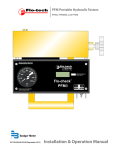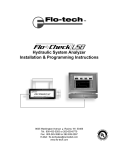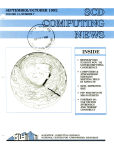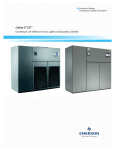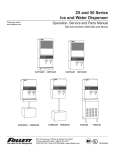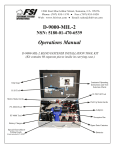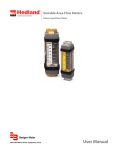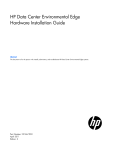Download User Manual - Badger Meter
Transcript
PFM Portable Hydraulic Testers PFM6, PFM6BD and PFM8 TUR-UM-00730-EN-02 (August 2014) User Manual PFM Portable Hydraulic Testers, PFM6, PFM6BD and PFM8 CONTENTS Introduction . . . . . . . . . . . . . . . . . . . . . . . . . . . . . . . . . . . . . . . . . . . . . . . . . . . . . . . . . . . . . . . . . . . . . . . . . iii PFM6 Digital Hydraulic Tester . . . . . . . . . . . . . . . . . . . . . . . . . . . . . . . . . . . . . . . . . . . . . . . . . . . . . . . . . . . iii PFM6BD Bi-directional Hydraulic Tester . . . . . . . . . . . . . . . . . . . . . . . . . . . . . . . . . . . . . . . . . . . . . . . . . . . . iv PFM8 Digital Hydraulic Tester & Dynamometer . . . . . . . . . . . . . . . . . . . . . . . . . . . . . . . . . . . . . . . . . . . . . . . . 5 Calibration . . . . . . . . . . . . . . . . . . . . . . . . . . . . . . . . . . . . . . . . . . . . . . . . . . . . . . . . . . . . . . . . . . . . . . . . . . 6 Series/Model Number Designations . . . . . . . . . . . . . . . . . . . . . . . . . . . . . . . . . . . . . . . . . . . . . . . . . . . . . . . . . .6 Installation . . . . . . . . . . . . . . . . . . . . . . . . . . . . . . . . . . . . . . . . . . . . . . . . . . . . . . . . . . . . . . . . . . . . . . . . . . 7 Operation . . . . . . . . . . . . . . . . . . . . . . . . . . . . . . . . . . . . . . . . . . . . . . . . . . . . . . . . . . . . . . . . . . . . . . . . . . .7 Test Procedures . . . . . . . . . . . . . . . . . . . . . . . . . . . . . . . . . . . . . . . . . . . . . . . . . . . . . . . . . . . . . . . . . . . . . . . 9 General Information . . . . . . . . . . . . . . . . . . . . . . . . . . . . . . . . . . . . . . . . . . . . . . . . . . . . . . . . . . . . . . . . . 9 Standard Test Conditions . . . . . . . . . . . . . . . . . . . . . . . . . . . . . . . . . . . . . . . . . . . . . . . . . . . . . . . . . . . . . . 9 Pump Test . . . . . . . . . . . . . . . . . . . . . . . . . . . . . . . . . . . . . . . . . . . . . . . . . . . . . . . . . . . . . . . . . . . . . . . 10 Tee Test . . . . . . . . . . . . . . . . . . . . . . . . . . . . . . . . . . . . . . . . . . . . . . . . . . . . . . . . . . . . . . . . . . . . . . . . 11 Control Valve, Cylinder and Hydraulic Motor Test . . . . . . . . . . . . . . . . . . . . . . . . . . . . . . . . . . . . . . . . . . . . . . 12 Relief Valve in Separate Housing . . . . . . . . . . . . . . . . . . . . . . . . . . . . . . . . . . . . . . . . . . . . . . . . . . . . . . . . . 12 Relief Valves . . . . . . . . . . . . . . . . . . . . . . . . . . . . . . . . . . . . . . . . . . . . . . . . . . . . . . . . . . . . . . . . . . . . . . 13 Maintenance/Troubleshooting . . . . . . . . . . . . . . . . . . . . . . . . . . . . . . . . . . . . . . . . . . . . . . . . . . . . . . . . . . . . 13 Load Valve . . . . . . . . . . . . . . . . . . . . . . . . . . . . . . . . . . . . . . . . . . . . . . . . . . . . . . . . . . . . . . . . . . . . . . . 13 Flow . . . . . . . . . . . . . . . . . . . . . . . . . . . . . . . . . . . . . . . . . . . . . . . . . . . . . . . . . . . . . . . . . . . . . . . . . . . 13 Burst Discs and Burst Disc Bodies . . . . . . . . . . . . . . . . . . . . . . . . . . . . . . . . . . . . . . . . . . . . . . . . . . . . . . . . 13 Battery Replacement . . . . . . . . . . . . . . . . . . . . . . . . . . . . . . . . . . . . . . . . . . . . . . . . . . . . . . . . . . . . . . . . 15 Flow vs Pressure Drop . . . . . . . . . . . . . . . . . . . . . . . . . . . . . . . . . . . . . . . . . . . . . . . . . . . . . . . . . . . . . . . . . . 16 Hydraulic Formulas and Viscosity Information . . . . . . . . . . . . . . . . . . . . . . . . . . . . . . . . . . . . . . . . . . . . . . . . . . . 17 Fluid Viscosity Conversion Table . . . . . . . . . . . . . . . . . . . . . . . . . . . . . . . . . . . . . . . . . . . . . . . . . . . . . . . . . . . . 18 Specifications . . . . . . . . . . . . . . . . . . . . . . . . . . . . . . . . . . . . . . . . . . . . . . . . . . . . . . . . . . . . . . . . . . . . . . . 19 Material . . . . . . . . . . . . . . . . . . . . . . . . . . . . . . . . . . . . . . . . . . . . . . . . . . . . . . . . . . . . . . . . . . . . . . . . 19 PFM6/8 Series Testers . . . . . . . . . . . . . . . . . . . . . . . . . . . . . . . . . . . . . . . . . . . . . . . . . . . . . . . . . . . . . . . . 19 PFM6BD Series Testers . . . . . . . . . . . . . . . . . . . . . . . . . . . . . . . . . . . . . . . . . . . . . . . . . . . . . . . . . . . . . . . 19 Magnetic Pick-Up . . . . . . . . . . . . . . . . . . . . . . . . . . . . . . . . . . . . . . . . . . . . . . . . . . . . . . . . . . . . . . . . . . 19 Performance . . . . . . . . . . . . . . . . . . . . . . . . . . . . . . . . . . . . . . . . . . . . . . . . . . . . . . . . . . . . . . . . . . . . . 19 Dimensions . . . . . . . . . . . . . . . . . . . . . . . . . . . . . . . . . . . . . . . . . . . . . . . . . . . . . . . . . . . . . . . . . . . . . . . . . 20 Page ii TUR-UM-00730-EN-02 August 2014 User Manual INTRODUCTION Flo-tech Portable Hydraulic Testers are designed to provide fast diagnostic troubleshooting of hydraulic systems and components. These compact, self-contained testers feature laboratory accuracy and provide flow, temperature, pressure and optional power measurements simultaneously from one point. Flo-tech offers three models, all available in up to five flow ranges and three port sizes. PFM6 Digital Hydraulic Tester Figure 1: Digital hydraulic tester Features • Accuracy of ±1% of full flow range • 3-1/2 digit LCD display for flow and temperature • Helical tube pressure gauge • One toggle switch to control power and select flow and temperature • Loading valve with fingertip control of pressure up to 6000 psi (414 Bar) • Platinum resistive temperature sensor • Internal over-pressure burst disc protection August 2014 TUR-UM-00730-EN-02 Page iii Introduction PFM6BD Bi-directional Hydraulic Tester Figure 2: Bi-directional hydraulic tester Features • Bi-directional testing • Low pressure drop • Accuracy of ±1% of full flow range • 3-1/2 digit LCD display for flow and temperature • Helical tube pressure gauge • One toggle switch to control power and select flow and temperature • Loading valve with fingertip control of pressure up to 6000 psi (414 Bar) • Platinum resistive temperature sensor • Internal over-pressure burst disc protection Page 4 TUR-UM-00730-EN-02 August 2014 Introduction PFM8 Digital Hydraulic Tester & Dynamometer Flo-check TM U.S. PRESSURE METRIC LOW - EMP PFM GPM, l/min - F°, C° - H.P., - kW PWR OPEN LOAD VALVE BEFORE OPERATING DO NOT STAND IN FRONT OF PRESSURE RELIEF DISC VENT PRESS ON OFF LOW EMP AUTO SHUT-OFF 5 MINUTES WHEN NO FLOW FLASHING LO-BAT? REPLACE BATTERIES. INDICATES DISPLAY OVER RANGE. Figure 3: Digital hydraulic tester and dynamometer Features • Accuracy of ±1% of full flow range • 3-1/2 digit LCD displays • Digital pressure readings • Membrane switch to select flow, temperature, pressure or power • Front panel switch to select U.S. or metric readings • Loading valve with fingertip control of pressure up to 6000 psi (414 Bar) • Platinum resistive temperature sensor • Internal over-pressure burst disc protection August 2014 TUR-UM-00730-EN-02 Page 5 Calibration CALIBRATION Testers are calibrated with a 32 cSt (150 SUS) hydraulic oil. Standard calibration is done using 5 points and is traceable to NIST, ISO 9001. An optional 10 point calibration can be performed for increased accuracy. SERIES/MODEL NUMBER DESIGNATIONS Series Model Number * Nominal Port Size Flow Rate PFM6-15 F5080 (CE) - XXX SAE 12 1…15 GPM PFM6-30 F5079 (CE) - XXX SAE 12 2…30 GPM PFM6-60 F5078 (CE) - XXX SAE 16 3…60 GPM PFM6-85 F5077 (CE) - XXX SAE 16 4…85 GPM PFM6-200 F5076 (CE) - XXX SAE 24 7…199.9 GPM PFM6-15 F5110 (CE) - XXX G 3/4 4…56 LPM PFM6-30 F5111 (CE) - XXX G 3/4 7.5…113.6 LPM PFM6-60 F5112 (CE) - XXX G1 12…227 LPM PFM6-85 F5113 (CE) - XXX G1 15…321 LPM PFM6-200 F5114 (CE) - XXX G 1-1/2 26…757 LPM PFM6BD-60 F5082 (CE) - XXX SAE 16 3…60 GPM / 12…227 LPM PFM6BD-85 F5083 (CE) - XXX SAE 16 4…85 GPM / 15…321 LPM PFM6BD-200 F5084 (CE) - XXX SAE 24 7…199.9 GPM / 26…757 LPM PFM8-15 F5061 SAE 12 1…15 GPM / 4…56 LPM 52.5 (39) PFM8-30 F5058 SAE 12 2…30 GPM / 7.5…113.6 LPM 105 (78) PFM8-60 F5052 SAE 16 3…60 GPM / 12…227 LPM 210 (157) PFM8-85 F5053 SAE 16 4…85 GPM / 15…321 LPM 98 (222) PFM8-200 F5054 SAE 24 7…199.9 GPM / 26…757 LPM 700 (522) Power HP (kW) N/A N/A N/A * Replace XXX with Psi, BAR, KG/CM2 or MPA to specify complete model number. Table 1: Model number designations READ INSTRUCTIONS THOROUGHLY BEFORE INSTALLING THE TESTER. IF YOU HAVE ANY QUESTIONS REGARDING PRODUCT INSTALLATION OR MAINTENANCE, CALL YOUR LOCAL SUPPLIER OR THE FACTORY FOR MORE INFORMATION. Page 6 TUR-UM-00730-EN-02 August 2014 Installation INSTALLATION THE INFORMATION IN THIS MANUAL IS FOR GENERAL APPLICATION ONLY. ANY GUIDELINES FURNISHED BY THE MANUFACTURER OF THE MACHINE’S HYDRAULIC COMPONENTS SHOULD BE FOLLOWED. SPECIFIC SYSTEMS MAY REQUIRE SPECIFIC TEST PROCEDURES. Install the PFM6, PFM6BD or PFM8 tester at any location in the hydraulic circuit with the flow from IN to OUT as marked near the ports of the flow meter. The IN and OUT ports on the PFM6BD indicate the primary flow direction. It is advisable to keep any elbows, tees, valves, or other obstructions, at least 12 inches (31 cm) away from the inlet and outlet ports to preserve the accuracy of the flow measurement. Use quick disconnect couplings for easy connections and to keep tester sealed and clean when not in use. See "Test Procedures" on page 9 for typical test placement. OPERATION ALL TESTERS ARE SHIPPED WITH THE LOADING VALVE IN THE CLOSED POSITION. THE LOADING VALVE MUST BE OPENED FULLY BEFORE INITIATING FLOW AND TESTING OF THE HYDRAULIC CIRCUIT. TURN THE LOADING VALVE HANDLE COUNTERCLOCKWISE TO THE FULLY OPEN POSITION. FAILURE TO OPEN THE LOADING VALVE FULLY CAN RESULT IN INJURY TO PERSONNEL AND/OR DAMAGE TO THE EQUIPMENT. The PFM6 and PFM6BD testers use a three position, single toggle switch to turn on the power and select to display either flow or temperature readings. These models are factory calibrated for either U.S. or metric readings. The PFM8 testers can be changed in the field between U.S. and metric readings via a slide switch located in the center of the front panel. Use a small pointed object to slide this switch to the desired position. After selecting U.S. or metric, select power and display options are made via the membrane switches. Press ON to display pressure on the left side and flow on the right side. Press TEMP to display the temperature on the right side. Press PWR to display the power on the left side. Toggle Switch Figure 4: PFM6 and PFM6BD toggle switch Display Function F Flow T (stylized) Temperature H Horsepower P Kilowatt NNOTE: If no flow has been present for five minutes, the power saver circuit will automatically shut the PFM8 off. Press ON to restore power. August 2014 TUR-UM-00730-EN-02 Page 7 Operation To prolong battery life on all testers, turn off the tester when the tester is not being used. Either return the toggle switch to the OFF position on the PFM6 and PFM6BD models, or press OFF on the PFM8 model. Once the tester has been installed, the pressure can be regulated by operation of the loading valve. IIMPORTAN Always start with the loading valve open. TURN THE LOADING VALVE HANDLE COUNTERCLOCKWISE TO OPEN BEFORE STARTING MACHINERY. INJURY TO PERSONNEL AND/OR DAMAGE TO THE EQUIPMENT CAN RESULT IF THE LOADING VALVE IS FULLY CLOSED. THE PFM6BD IS NOT DESIGNED FOR HIGH PRESSURE “DEADHEAD” (LOADING VALVE FULLY CLOSED) APPLICATIONS IN THE REVERSE DIRECTION. USAGE UNDER THIS CONDITION COULD LEAD TO LOADING VALVE FAILURE. UNDER SUCH CONDITIONS, MAXIMUM OPERATING PRESSURE IS LIMITED TO 2000 PSI (138 BAR). The PFM6 and PFM8 testers are equipped with a poppet style loading valve. The PFM6BD testers use a spool design loading valve to accommodate bi-directional flow. The spool design requires more turns to go from total open to total close. Flo-check TM U.S. PRESSURE METRIC LOW - EMP PFM GPM, l/min - F°, C° - H.P., - kW PWR OPEN LOAD VALVE BEFORE OPERATING DO NOT STAND IN FRONT OF PRESSURE RELIEF DISC VENT PRESS ON OFF LOW EMP AUTO SHUT-OFF 5 MINUTES WHEN NO FLOW FLASHING LO-BAT? REPLACE BATTERIES. INDICATES DISPLAY OVER RANGE. Figure 5: PFM8 slide and membrane switches Pressure is displayed as follows: PFM6 The gauge indicates pressure at the inlet port PFM6BD The gauge indicates pressure at the inlet port dependent on the direction of flow PFM8 The pressure is displayed on the LCD. A minimum of 200 psi (14 kg/cm2) is required to activate the display. The psi will increment in 10s (for example 200, 210, 220); kg/cm2, bars or MPA will increment in single units (for example 141, 142, 143, etc.) On all models, the battery voltage is affected by cold temperatures. Allow time for the circulating oil to warm the tester before critical measurements are taken. On the PFM6 and PFM6BD, a LO BAT signal on the display indicates a low battery condition. On the PFM8, a flashing colon on the display indicates a low battery condition. Replace the batteries with four AA alkaline batteries. See "Battery Replacement" on page 15. Page 8 TUR-UM-00730-EN-02 August 2014 Test procedures TEST PROCEDURES ALL TESTERS ARE SHIPPED WITH THE LOADING VALVE IN THE CLOSED POSITION. THE LOADING VALVE MUST BE OPENED FULLY BEFORE INITIATING FLOW AND TESTING THE HYDRAULIC CIRCUIT. TURN THE LOADING VALVE HANDLE COUNTERCLOCKWISE TO THE FULLY OPEN POSITION. FAILURE TO OPEN THE LOADING VALVE FULLY CAN RESULT IN INJURY TO PERSONNEL AND/OR DAMAGE TO THE EQUIPMENT. THE INFORMATION IN THIS MANUAL IS FOR GENERAL APPLICATION ONLY. ANY INFORMATION FURNISHED BY THE MANUFACTURER OF THE MACHINE’S HYDRAULIC COMPONENTS SHOULD BE FOLLOWED. SPECIFIC SYSTEMS MAY REQUIRE SPECIFIC TEST PROCEDURES. General Information The PFM6 and PFM6BD testers are designed to measure flow, pressure and temperature. The PFM8 testers are also designed to measure power. The power measurements are derived from the product of flow and pressure. When using a PFM6 or PFM6BD, power can be calculated using the formulas in “Hydraulic Formulas and Viscosity Information” on page 17. Standard Test Conditions 1. Install the PFM tester as described in one of the following test procedures: a. “Pump Test” on page 10 b. “Tee Test” on page 11 c. “Control Valve, Cylinder and Hydraulic Motor Test” on page 12 d. “Relief Valve in Separate Housing” on page 12 e. “Relief Valves” on page 13 2. Open the loading valve fully by turning the handle counterclockwise. 3. Start the pump and adjust it to rated speed. 4. To raise the system temperature, close the tester loading valve to develop a pressure somewhat below the relief valve pressure. Maintain pressure until the desired temperature is reached. 5. Open the tester’s loading valve fully and proceed with the required test procedure. 6. The tester will display flow, pressure, temperature and power readings. August 2014 TUR-UM-00730-EN-02 Page 9 Test procedures Pump Test Install tee between the pump discharge port and the return line to the tank. Be sure the fluid path is only through the pump, the hydraulic test unit and back to the tank. OUT IN TEE DO NOT STAND IN FRONT OF PRESSURE RELIEF DISK VENT. by HEDLAND RACINE, WI. USA INDICATES DISPLAY OVER RANGE. OPEN LOAD VALVE BEFORE STARTING MACHINERY. PUMP RELIEF VALVE OFF Flo-check PFM FLOW TEMP Flo-check PFM TANK Figure 6: Pump test 1. Plug the line to the control valve. 2. Open the tester loading valve fully to read maximum pump flow at zero pressure. 3. Close the loading valve to increase pressure from zero pressure to rated or maximum pump pressure to determine pump condition. 4. Check the pump flow at rated pressure against the pump manufacturer’s specifications. A decrease in flow from zero pressure to maximum pressure indicates the pump condition. A pump that delivers a constant low flow at zero pressure and at maximum pressure suggests suction problems. Page 10 TUR-UM-00730-EN-02 August 2014 Test procedures Tee Test Install tee between the pump and control valve. Connect the tee to the IN port of the PFM tester. The OUT port of the tester is connected to the tank. Pumps and relief valves can be isolated from the system and checked with the Tee Test. OUT OUT CONTROL VALVE IN TEE DO NOT STAND IN FRONT OF PRESSURE RELIEF DISK VENT. by HEDLAND RACINE, WI. USA INDICATES DISPLAY OVER RANGE. OPEN LOAD VALVE BEFORE STARTING MACHINERY. PUMP RELIEF VALVE OFF Flo-check PFM FLOW TEMP Flo-check PFM TANK Figure 7: Tee test INCREASE PRESSURE SLOWLY. THE RELIEF VALVE MAY NOW BE ISOLATED FROM THE HYDRAULIC CIRCUIT, AND SYSTEM PRESSURES HIGHER THAN THE RELIEF VALVE SETTING CAN RESULT IN INJURY TO PERSONNEL AND/OR DAMAGE TO THE EQUIPMENT. 1. Pump Test a. Plug the line to the control valve. b. Open the tester loading valve fully to read maximum pump flow at zero pressure. c. Close the loading valve to increase pressure from zero pressure to rated or maximum pump pressure to determine pump condition. d. Check the pump flow at rated pressure against the pump manufacturer’s specifications. A decrease in flow from zero pressure to maximum pressure indicates the pump condition. A pump that delivers a constant low flow at zero pressure and at maximum pressure suggests suction problems. 2. Relief Valve Test (for relief valve in separate housing, see “Relief Valve in Separate Housing” on page 12.) a. Put a control valve into a power output mode with the output flow blocked, such as a cylinder at the end of its stroke. b. Close the tester loading valve while viewing the pressure. Pressure will increase until the relief valve opens. Record the pressure at this point. Repeat to check the relief valve adjustment. August 2014 TUR-UM-00730-EN-02 Page 11 Test procedures Control Valve, Cylinder and Hydraulic Motor Test IN / OUT OUT HYDRAULIC MOTOR CONTROL VALVE TEE DO NOT STAND IN FRONT OF PRESSURE RELIEF DISK VENT. by HEDLAND RACINE, WI. USA INDICATES DISPLAY OVER RANGE. OPEN LOAD VALVE BEFORE STARTING MACHINERY. OFF Flo-check PFM BD FLOW TEMP Flo-check PFM BD PUMP RELIEF VALVE TANK Figure 8: Control valve, cylinder and hydraulic motor test (PFM6BD) 1. Put one control valve in an operating position. Only one control valve should be in an operating position at any one time. 2. Slowly close the tester loading valve to achieve the pressure obtained in step 3 of “Pump Test” on page 10 or Step 1c. “Tee Test” on page 11 and record the flow. Repeat for all operating positions of all control valves. a. If all components are in good operating condition, pressure and flow measurements should be the same as in Step 3 of the “Pump Test” on page 10. b. If a decrease in flow in any control valve position is noted, leakage is indicated. See Step 3 below for the test routine to determine which control valve is at fault. c. If the decrease in flow is the same with the control valve in all positions, it indicates that the relief valve is at fault. NNOTE: This can also indicate some other leak is present in the control valve such as a defective casting, damaged seals, or worn valve position detents, but always check the relief valve first. 3. To locate the fault in the control valve, cylinder or motor, disconnect cylinder and plug connection. a. Place the control valve handle in the position where the greatest decrease of flow was noted. b. Close the tester loading valve to achieve the test pressure and record the flow. c. If the same decrease in flow is noted as in test performed in Step 2b above, then the control valve is at fault. However, if the flow readings are now higher and comparable to the other control valves, then a faulty cylinder or motor is indicated. Relief Valve in Separate Housing 1. Install the tester in a Tee Test configuration to the line connecting the pump and relief valve. Plug any extra outlets. 2. Close the tester loading valve and watch the pressure and flow. a. Reconnect the control valve to the tee. Put a control valve into a power output mode with the output flow blocked, such as a cylinder at the end of its stroke. b. Close the tester loading valve while watching the pressure. Pressure will increase until the relief valve opens. Record the pressure at this point. Repeat to check the relief valve adjustment. Page 12 TUR-UM-00730-EN-02 August 2014 Maintenance/troubleshooting Relief Valves Often relief valves will start to open before they reach their full pressure flow settings. Compare the pressure and flow rate readings made in Step 3 under “Tee Test” on page 11. Any great decrease in flow rate from those tests indicates a faulty relief valve. MAINTENANCE/TROUBLESHOOTING The PFM testers are designed to give years of trouble-free service. However, if there is an issue, you can make a few simple checks. Load Valve If the valve fails to load the system, remove the valve body and check for foreign material, worn parts or seals. Flow The absence of any flow reading may indicate a blockage of the turbine. Remove the retaining ring from the inlet port and carefully remove the turbine assembly. Remove any material that may be preventing easy rotation of the rotor. Reassemble and attempt a flow reading again. If the tester still fails to indicate flow, return the tester to the factory. Burst Discs and Burst Disc Bodies The burst discs are designed to rupture at a specified pressure. The PFM6 and PFM8 testers have a single burst disc that bypasses flow around the loading valve when ruptured. The PFM6BD testers provide protection from excessive pressure in either direction with two internal burst discs that, when ruptured, bypass flow around the loading valve. If a rupture occurs, replace the burst discs. IF YOU DO NOT HAVE THE PROPER TOOLS TO ACCOMPLISH THIS TASK, IT IS HIGHLY RECOMMENDED THAT YOU RETURN THE TESTER(S) TO THE FACTORY FOR REPLACEMENT OF THE BURST DISC HOUSING AND THE BURST DISCS. INJURY TO PERSONNEL AND/OR DAMAGE TO EQUIPMENT MAY RESULT IF THE BURST DISCS ARE INSTALLED IMPROPERLY. The following tools and parts are needed: • 5/8" open end box wrench • 0…80 (or greater) pound-inch torque wrench Burst discs Optional August 2014 Description PFM6 PFM6BD PFM8 O-ring Backup ring Part Number F1614-7500 F1614-7500 F1614-7500 F3137-015 F1015-015 TUR-UM-00730-EN-02 Quantity 1 2 1 1 1 Page 13 Maintenance/troubleshooting Burst Disc Procedure for PFM6 and PFM8 Testers Position the tester block to expose the internal burst disc body as shown in Figure 10. Loosen the burst disc body from the flow meter block. Remove the burst disc body from the flow meter block. Remove the ruptured burst disc from the flow meter block and discard. Clean out the burst disc port. Remove any debris from the sealing surfaces. Rotate the tester to face the burst disc port upwards and drop in a new burst disc. Make sure it lies flat on the sealing surface entrance. Lubricate the O-ring on the burst disc housing and insert it back into the block. Tighten the burst disc housing down to form the disc against the sealing surface. 7. Using a torque wrench, tighten the burst disc body in the block to 35 foot-pounds (50.8 Nm). 1. 2. 3. 4. 5. 6. DO NOT OVER TORQUE THE BURST DISC HOUSING. APPLYING TOO MUCH TORQUE WILL DAMAGE THE BURST DISC AND CAUSE THE DISC TO RUPTURE PREMATURELY. Burst Disc Body (1) Burst Disc (1) Figure 9: PFM6 and PFM8 burst disc Burst Disc Procedure for PFM6BD Position the PFM6BD to expose the internal burst disc body as shown in Figure 11. Loosen the burst disc body from the flow meter block. Remove the burst disc body from the flow meter block. Remove the ruptured burst discs from the flow meter block and discard. Retain the support ring. Clean out the burst disc port and the support ring. Remove any debris from the sealing surfaces. Rotate the tester to face the burst disc port upwards and drop in a new burst disc. Make sure it lies flat on the sealing surface entrance. Drop in the support ring and follow it with the second burst disc. Lubricate the O-ring on the burst disc housing and insert it back into the block. Tighten the burst disc housing down to form the disc against the sealing surfaces. 7. Using a torque wrench, tighten the burst disc body in the block to 60 foot-pounds (81.4 Nm). 1. 2. 3. 4. 5. 6. DO NOT OVER TORQUE THE BURST DISC HOUSING. APPLYING TOO MUCH TORQUE WILL DAMAGE THE BURST DISC AND CAUSE THE DISC TO RUPTURE PREMATURELY. Page 14 TUR-UM-00730-EN-02 August 2014 Maintenance/troubleshooting Burst Disc Body (1) Burst Disc (2) Support Ring (1) Figure 10: PFM6BD burst discs Battery Replacement All PFM testers use four AA size alkaline batteries. These batteries will normally provide approximately 50 hours of service before a low battery condition is indicated. On the PFM6 and PFM6BD, a LO BAT signal on the display indicates a low battery. On the PFM8, a flashing colon (:) on the display indicates a low battery. When a low battery has been displayed, immediately remove discharged batteries from the tester to prevent battery holder corrosion. To change the batteries, remove the four screws on the cover assembly. Pull the cover slowly upward to clear the internal components. The batteries are located on the bottom of the case. See Figure 12. When installing the new batteries, ensure that they are centered in the holder and making contact at both ends. Replace the cover and secure the four screws. ALKALINE BATTERY AA 1.5 VOLTS CAUTION DO NOT CONNECT IMPROPERLY CHANGE OR DISPOSE OF IN FIRE. BATTERY MAY EXPLODE OR LEAK. MADE IN U.S.A. ALKALINE BATTERY AA 1.5 VOLTS CAUTION DO NOT CONNECT IMPROPERLY CHANGE OR DISPOSE OF IN FIRE. BATTERY MAY EXPLODE OR LEAK. MADE IN U.S.A. AA 1.5 VOLTS CAUTION DO NOT CONNECT IMPROPERLY CHANGE OR DISPOSE OF IN FIRE. BATTERY MAY EXPLODE OR LEAK. MADE IN U.S.A. AA 1.5 VOLTS CAUTION DO NOT CONNECT IMPROPERLY CHANGE OR DISPOSE OF IN FIRE. BATTERY MAY EXPLODE OR LEAK. MADE IN U.S.A. ALKALINE BATTERY ALKALINE BATTERY Figure 11: Battery replacement August 2014 TUR-UM-00730-EN-02 Page 15 Flow vs pressure drop FLOW VS PRESSURE DROP ΔP Captured Using Loading Valves 60 30 PFM6-15, PFM8-15 PFM6-30, PFM8-30 25 PRESSURE DROP, PSI PRESSURE DROP, PSI 50 40 30 20 10 0 0 5 10 15 20 15 10 5 0 20 0 10 20 FLOW, GPM 60 PFM6-85, PFM8-85 100 PRESSURE DROP, PSI PRESSURE DROP, PSI 50 40 30 20 10 0 10 20 30 40 50 60 80 60 40 20 0 70 0 10 20 30 FLOW, GPM PRESSURE DROP, PSI PRESSURE DROP, PSI 70 80 90 100 20 15 10 5 0 20 40 60 80 Reverse 60 40 20 0 80 100 120 140 160 180 200 220 Forward 0 10 20 FLOW, GPM 30 40 50 60 70 FLOW, GPM 60 40 PFM6BD-85 50 PFM6BD-200 35 Forward Forward 30 PRESSURE DROP, PSI PRESSURE DROP, PSI 60 PFM6BD-60 100 25 40 Reverse 30 20 10 25 Reverse 20 15 10 5 0 10 20 30 40 50 60 70 80 90 100 0 FLOW, GPM Page 16 50 120 PFM6-200, PFM8-200 0 40 FLOW, GPM 30 0 40 120 PFM6-60, PFM8-60 0 30 FLOW, GPM 0 20 40 60 80 100 120 140 160 180 200 220 FLOW, GPM TUR-UM-00730-EN-02 August 2014 Hydraulic formulas and viscosity information HYDRAULIC FORMULAS AND VISCOSITY INFORMATION Flow Rate Formulas Frequency (Hz) = K-Factor (K) = K x GPM 60 GPM = Hz × 60 GPM Hz × 60 K Time Base (TB) = GPM Hz Flow Rate Related Formulas Valve C V Factor = Flow Rate (GPM) × Fluid Specific Gravity ∆P Across Valve (PSI) Cylinder Velocity = Fluid Mortor Torque = 0.3208 x Flow Rate (GPM) Net Cylinder Arrea (in2 ) Flow Rate (GPM) × Pressure (PSIG) × 36.77 Rotational Speed Power Formulas H.P. = August 2014 LPM x Bar 447.4 H.P. = LPM x Bar 447.4 TUR-UM-00730-EN-02 kW = LPM x Bar 600 Page 17 Fluid viscosity conversion table FLUID VISCOSITY CONVERSION TABLE Saybolt Universal Seconds (SUS) ISO-VG CentiStoke CentiPoise¹ 31 2 1.0 0.876 35 3 2.5 2.19 40 5 4.2 3.68 45 5/7 5.9 5.17 50 7 7.5 6.57 Kerosene 55 7/10 8.8 7.71 Atlantic Richfield/Duro 55 Hydraulic Oil 60 10 10.5 9.20 Monsanto/Skydrol - 500 A 70 10/15 13.2 11.56 Mobil/Aero HFA Hydraulic Oil 80 15 15.7 13.75 No. 4 Fuel Oil 90 22 18.2 15.94 Stauffer Chemical/Fyrquel 90 100 22 20.6 18.05 Conoco/Syncon Synthetic AW Hydraulic Oil 2 150 32 32.0 28.03 Mobil/DTE 24 Hydraulic Oil 200 46 43.2 37.84 Citco/Glycol FR-40XD (Oil in Water) 300 68 65.0 56.94 SAE 20 Crankcase Oil 400 68/100 86.0 75.34 Sunoco/Sunvis 41 Hydraulic Oil 500 100 108 94.61 SAE 30 Crankcase Oil 750 150 162 141.91 SAE 40 Crankcase Oil 1000 220 216 189.22 Mobil/Paper Machine Oil - Type K 1500 320 323 282.95 SAE 50 Crankcase Oil 2000 460 431 377.56 Amoco/American Industrial Oil - No. 460 3000 680 648 567.65 SAE 140 Gear Oil 4000 1000 862 755.11 SAE 250 Gear Oil Typical Brands/Liquids at 100 °F Water — ¹ CentiPoise are given for oil of 0.876 specific gravity. Relationship: CentiStokes × Specific Gravity = CentiPoise 2 Fluid viscosity used to calibrate Testers and Sensors * ±1% Viscosity Range for Flo-Tech Testers and Sensors is 25 to 500 SUS Table 2: Viscosity conversion Page 18 TUR-UM-00730-EN-02 August 2014 Specifications SPECIFICATIONS Material Housing Turbine Rotor Rotor Supports Seals Ball Bearings Hub Cones Temperature Probe 6013-T351 Anodized aluminum T416 Stainless steel 6061-T6 Aluminum Buna N standard Viton® and EPR optional 440 C Stainless steel 6061-T6 Aluminum alloy 12L14 Steel, electroless nickel plate PFM6/8 Series Testers Valve Sleeve for 200 Model Poppet Straightening Sections Cones Cold rolled steel body with 303 SS stem (for 15/30 Models) 12L14 steel body with 303 SS stem (for 60/85/200 Models) D.O.M. steel tube 12L14 steel, hardened CA360 Brass (for 15/30 Models) 6061-T6 Aluminum (for 60/85/200 Models) 2024-T4 Aluminum PFM6BD Series Testers Valve Sleeve for 200 Model Poppet Straightening Sections Cones 12L14 steel body with 303 SS stem 4340 Alloy steel, hardened 6061-T6 Aluminum 2024-T4 Aluminum SAE Straight thread O-ring boss, female, J1926/1; BSPP ISO1179 Magnetic Pick-Up Body Nut Electronic Case Cover 12L14 steel, electroless nickel plate 12L14 steel, electroless nickel plate Cold rolled steel, zinc plate with clear seal, epoxy black paint Performance Flow Accuracy Repeatability Pressure Rating Turbine Response Fluid Temperature Ambient Temperature Flow Readout Operating Pressure Pressure Drop Fluid Temperature Readout Accuracy Battery Type August 2014 ±1% of full scale ±0.2% 6000 Psi (414 Bar) maximum with a 3:1 safety factor ≤200 ms –4…300 °F (–20…150 °C) –4…131 °F (–20…55 °C) Linearity and zero shift = ±1 digit Up to 6000 psi (414 Bar, 41.4 MPa, 420 kg/cm2) See “ΔP Captured Using Loading Valves” on page 16 Up to 300 °F (150 °C) ±1 digit AA size alkaline, ~50 hr of service TUR-UM-00730-EN-02 Page 19 DIMENSIONS C2 C1 A B Figure 12: Hydraulic tester dimension illustration C1 - PFM6 and PFM8 Series C2 - PFM6BD Series Series PFM6-15 PFM6-30 PFM6-60 PFM6-85 PFM6-200 PFM6BD-60 PFM6BD-85 PFM6BD-200 PFM8-15 PFM8-30 PFM8-60 PFM8-85 PFM8-200 Dimensions Length (A) × Depth (B) × Height (C) inches mm 11.3 × 3.6 × 10.3 11.3 × 3.6 × 10.3 11.5 × 3.6 × 10.3 11.5 × 3.6 × 10.3 12.3 × 4.1 × 10.8 11.3 × 3.6 × 10.4 11.3 × 3.5 × 10.4 11.8 × 4.1 × 10.9 11.3 × 3.6 × 10.3 11.3 × 3.6 × 10.3 11.5 × 3.6 × 10.4 11.5 × 3.6 × 10.4 12.3 × 4.1 × 10.9 287 × 92 × 262 287 × 92 × 262 292 × 92 × 262 292 × 92 × 262 311 × 105 × 275 287 × 92 × 265 287 × 92 × 265 300 × 105 × 277 287 × 92 × 262 287 × 92 × 262 292 × 92 × 265 292 × 92 × 265 11 × 105 × 277 Weight Lb (kg) 13.85 (6.3) 13.85 (6.3) 16.50 (7.5) 16.50 (7.5) 20.00 (9.1) 16.50 (7.5) 16.50 (7.5) 20.00 (9.1) 13.85 (6.3) 13.85 (6.3) 16.50 (7.5) 16.50 (7.5) 20.00 (9.1) Table 3: Dimensions Control. Manage. Optimize. Dynasonics is a registered trademark of Badger Meter, Inc. Other trademarks appearing in this document are the property of their respective entities. Due to continuous research, product improvements and enhancements, Badger Meter reserves the right to change product or system specifications without notice, except to the extent an outstanding contractual obligation exists. © 2014 Badger Meter, Inc. All rights reserved. www.badgermeter.com The Americas | Badger Meter | 4545 West Brown Deer Rd | PO Box 245036 | Milwaukee, WI 53224-9536 | 800-876-3837 | 414-355-0400 México | Badger Meter de las Americas, S.A. de C.V. | Pedro Luis Ogazón N°32 | Esq. Angelina N°24 | Colonia Guadalupe Inn | CP 01050 | México, DF | México | +52-55-5662-0882 Europe, Middle East and Africa | Badger Meter Europa GmbH | Nurtinger Str 76 | 72639 Neuffen | Germany | +49-7025-9208-0 Europe, Middle East Branch Office | Badger Meter Europe | PO Box 341442 | Dubai Silicon Oasis, Head Quarter Building, Wing C, Office #C209 | Dubai / UAE | +971-4-371 2503 Czech Republic | Badger Meter Czech Republic s.r.o. | Maříkova 2082/26 | 621 00 Brno, Czech Republic | +420-5-41420411 Slovakia | Badger Meter Slovakia s.r.o. | Racianska 109/B | 831 02 Bratislava, Slovakia | +421-2-44 63 83 01 Asia Pacific | Badger Meter | 80 Marine Parade Rd | 21-06 Parkway Parade | Singapore 449269 | +65-63464836 Legacy Document Number: 05-TUR-UM-00193-EN China | Badger Meter | 7-1202 | 99 Hangzhong Road | Minhang District | Shanghai | China 201101 | +86-21-5763 5412





















